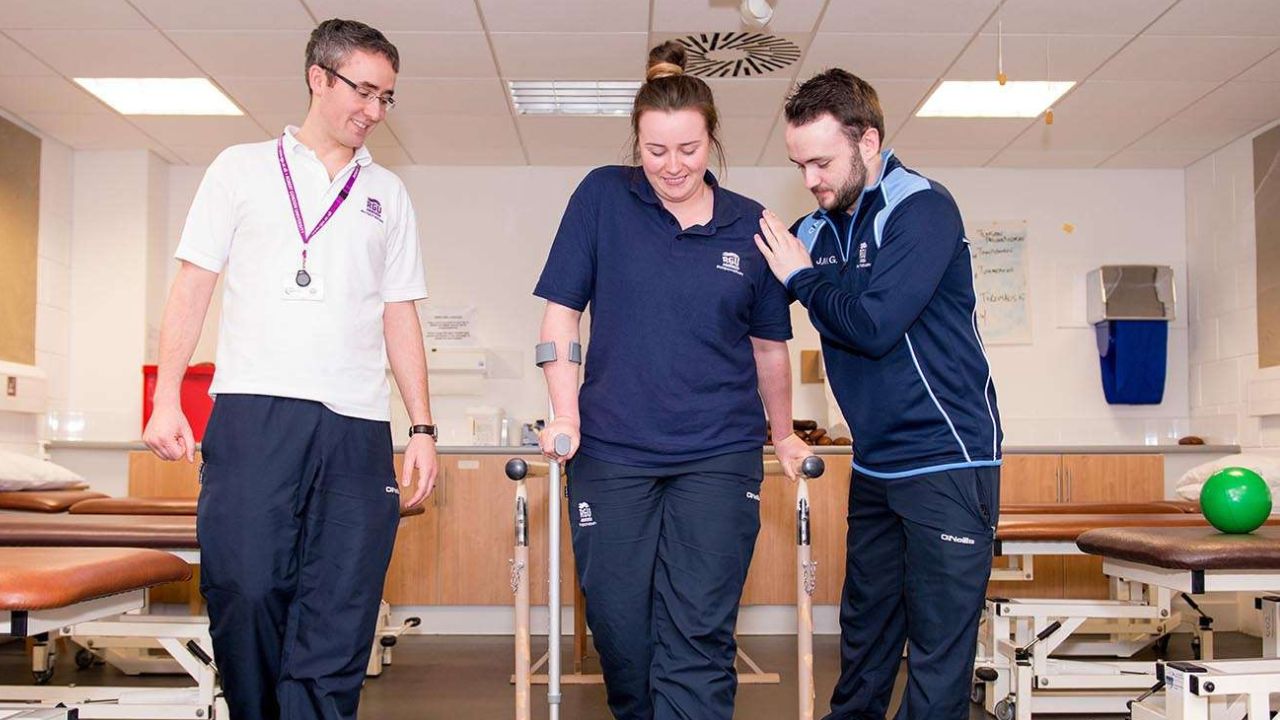RGU’s MSc Physiotherapy (Pre-registration) is delivered over two years of full-time study and integrates academic coursework with clinical placements from the very beginning. The curriculum is designed to develop clinical reasoning, practical physiotherapy skills, and the ability to evaluate and apply evidence-based practice.
Year 1
The first year focuses on building foundational knowledge across core areas of physiotherapy—musculoskeletal, neurological, and cardiorespiratory practice. You’ll also begin developing key skills in exercise prescription, health promotion, and patient-centered care. Learning is hands-on and highly interactive, with a strong emphasis on real-world application through:
-
Practical workshops and simulated learning using volunteer patients
-
Case-based discussions to develop clinical reasoning
-
Tutorials and seminars in small groups (practical classes typically capped at 14 students)
Academic modules are interwoven with your first three clinical placements, allowing you to immediately apply your classroom learning in supervised healthcare environments.
Year 2
In the second year, you’ll deepen your knowledge and prepare for autonomous practice. You’ll also complete a research project (dissertation) on a topic relevant to physiotherapy practice, which sharpens your critical thinking and analytical skills. Additional clinical placements throughout the year ensure continued development of practical expertise across different patient populations and healthcare settings.
Learning & Teaching Methods
RGU uses active learning techniques to keep students engaged and prepare them for the realities of clinical practice. Rather than relying on traditional lectures, most classes involve:
-
Interactive group sessions
-
Problem-solving based on clinical case scenarios
-
Skills labs and simulated treatment environments
-
Supervised practice sessions in small groups
You’ll also benefit from mentorship and feedback throughout the course, both in academic modules and during placements.
Assessment Methods
You’ll be assessed using a combination of:
Year 1
-
Written assignments
-
Group oral presentations
-
Practical skills exams
Year 2
You’ll also receive structured feedback throughout the course to help you improve and track your progress.
Clinical Placements
You’ll complete six placements in total:
-
Placements 1–3: Each 6 weeks in length
-
Placements 4–6: Each 5 weeks in length
-
Final placement: An elective placement that can be arranged in Canada or another country (conditions apply)
All placements are designed to meet professional regulatory requirements and expose you to a variety of physiotherapy settings, including hospitals, outpatient clinics, and community care.


